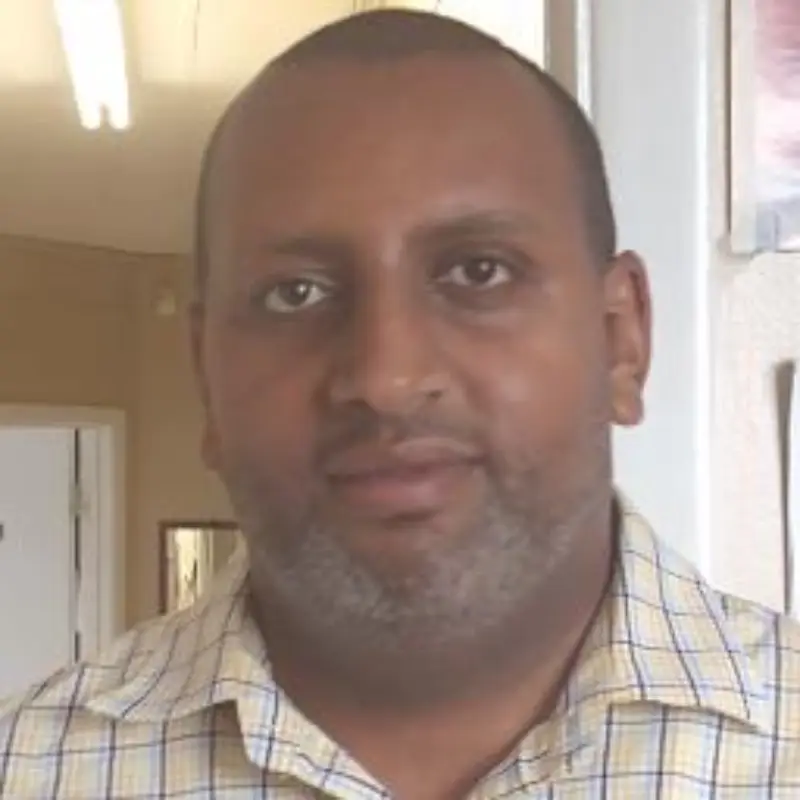
Samuel Woldemichael
About
Hello and welcome! My name is Samuel, and I have deep respect and admiration for any person willing to seek improvement in a therapeutic environment. I was born in Ethiopia, raised in Maryland. I have worked as a counselor/therapist since 2004 and have had great success working with people to improve their quality of life. My approach to therapy is to treat each person as a unique individual with potential to improve emotional health. Oftentimes, emotional injuries such as abandonment, betrayal, injustice, rejection, humiliation and loss can cause long term damage, preventing us from experiencing peace of mind or joy. Similar to physical injuries, emotional injuries can heal if treated with the proper amount of care and nurture. Therapy is a tool to learn how to heal emotional injuries, and trauma, in order to have the strength to strive towards our ultimate potential. Depression, anxiety, anger and many other symptoms are often the byproduct of unresolved emotional injuries. Also, therapy is able to increase self-awareness in order to form better relationships with loved ones and stop a cycle of despair and self-destructive behavior. I wish you the best in your journey towards wellbeing.
What drew me toward working with autistic and neurodivergent clients is the profound respect I have for the unique ways they experience and process the world. From early on in my career, I saw how often neurodivergent individuals were misunderstood, misjudged, or overlooked—not because of a lack of strengths or potential, but because the world isn’t always built with their needs in mind.As a therapist, I believe every person carries within them the capacity for growth and healing, but that capacity often requires the right environment of acceptance, patience, and understanding to be realized. With autistic and neurodivergent clients, I’ve found that therapy can be a powerful space where they are finally met without judgment and encouraged to embrace their authentic selves.Another reason I was drawn to this work is that many of the emotional injuries I see—feelings of rejection, humiliation, or being “different”—are magnified in the lives of neurodivergent individuals. By helping to heal those injuries, therapy can restore not only self-confidence and peace of mind but also a sense of belonging.Ultimately, I chose to specialize in this area because I want to be an ally in creating that safe, nurturing space where neurodivergent people can explore their strengths, learn tools to manage challenges, and move toward a life that reflects their true potential.
I bring a strength-based approach to my work by beginning with the belief that every person already carries within them the qualities needed to grow, heal, and thrive. My role as a therapist is not to dwell on what is “wrong” or to frame people by their challenges, but rather to help them recognize, embrace, and build upon the strengths they already possess.When someone comes into therapy, I look for resilience, resourcefulness, creativity, or even the simple courage it takes to seek support. These are not small things—they are signs of strength. By affirming these qualities, we create a foundation for healing that empowers clients to move forward with confidence rather than feeling defined by struggles.I also approach each client with compassion and deep respect, knowing that emotional injuries—like rejection, betrayal, or loss—can leave people feeling broken or diminished. My commitment is to affirm their worth, nurture their strengths, and walk alongside them as they reclaim joy, peace of mind, and healthier relationships.Being born in Ethiopia and raised in Maryland has also shaped my understanding of the importance of culture, identity, and belonging. This background allows me to honor the unique experiences that each client brings, and to affirm the richness of their story as a central part of the healing process.Ultimately, my work is about helping clients recognize that they are not defined by their wounds, but by their potential. Together, we focus on cultivating that potential so they can move toward their best, most authentic self.

.webp)




